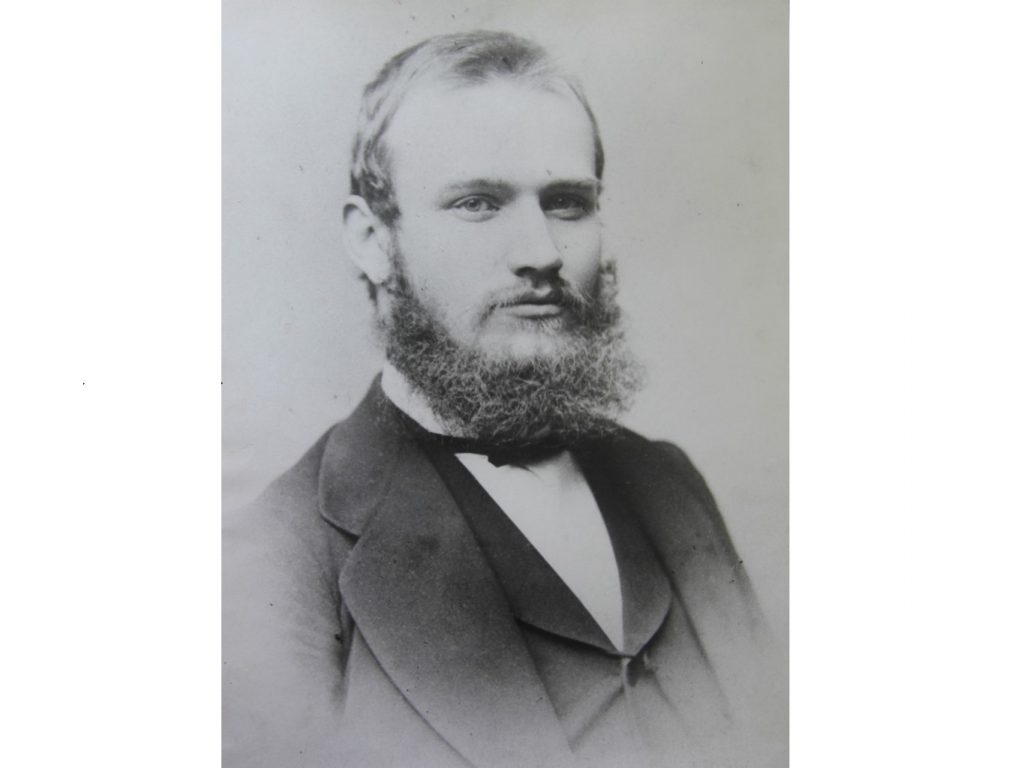Jan Baudouin de Courtenay, founder of Kazan linguistics school

The distinguished scholar worked at Imperial Kazan University in 1874-1883.
Baudouin de Courtenay (1845 – 1929) was born in the family of a land surveyor in the town of Radzymin near Warsaw. In 1862, he entered the Faculty of History and Philology of the Warsaw Main School (the former name of Warsaw University). After leaving school in 1866, he was sent abroad and studied at the universities of Prague, Jena, and Berlin.
In 1868-1870, the young linguist worked at St. Petersburg University on his dissertation ‘On the Old Polish language before the XIV century’, which he defended in 1870 and received a master’s degree in comparative linguistics. For the work ‘Some cases of the action of analogy in the Polish declension’ in 1870 he received a Ph.D. in Leipzig.
In 1873, Baudouin ran for the vacant position of associate professor at the Department of Comparative Linguistics at Kazan University. On August 24, 1874, the Academic Board of the Imperial Kazan University unanimously elected him to the position. According to the Russian naming tradition, which includes a personal name and a patronymic, he was called Ivan Aleksandrovich in Russia.
In May 1875 at St. Petersburg University, Baudouin defended his doctoral dissertation ‘The experience of the phonetics of Resian dialects’ (for this work, the Academy of Sciences awarded him the Uvarov Prize).
In October 1875, Baudouin de Courtenay began working at Kazan University as an assistant professor. In 1876 he received the title of Extraordinary Professor, and in 1877 – Ordinary Professor of the Department of Comparative Linguistics.
The young scientist immediately attracted the attention of students and young teachers of Kazan University. They were impressed by the fact that the professor lectured not sitting at the chair, as was customary in those years, but walking around the audience and proving his ideas with chalk in hand. These students began to form a team of young scientists who shared Baudouin’s views on language and on the methods of its study.
Talented youth united around Baudouin (N.V. Krushevsky, V.A. Bogoroditsky, A.I. Aleksandrov, A.I. Anastasiev, S.K. Bulich, N.S. Kukuranov and others); a circle of like-minded people shaped into the Kazan linguistic school.
The Kazan period of scientific and pedagogical activity played a big role in the scholar’s life. These were years of great creative upsurge. Here, the theoretical principles and scientific problems of the school were formulated, the foundations of the doctrine of the phoneme and alternations, word formation, and language typology were laid. Baudouin paid much attention to questions of language methodology. He was a supporter of science in language teaching. In the study of grammar and self-observation of students over living speech, the scientist saw the way not only to mastering the language being studied, but also to developing the mental abilities of children. He expressed very important thoughts about the need to take into account the peculiarities of the native language of students, which were embodied in the methodological systems of V. Radlov, A. Anastasiev, and then V. Bogoroditsky.
For many years, the outstanding linguist studied various Indo-European languages and wrote his scientific works not only in Russian and Polish, but also in German, French, Czech, Italian, Lithuanian and other languages.
Baudouin de Courtenay made a revolution in the science of language: before him, languages were studied exclusively on the basis of written monuments. He proved in his works that the essence of language is in speech activity, which means that it is necessary to study living languages and dialects. Thus, one can understand the mechanism of the functioning of the language and test the correctness of linguistic theories.
After Kazan, he had a fruitful career in other universities in Tartu, Krakow, St. Petersburg, and Warsaw. He was a full member of the Krakow Academy of Sciences (1887), a corresponding member of the St. Petersburg Academy of Sciences (1897), an honorary doctor of Kazan University, Tartu University, Warsaw University, as well as a member of many other scholarly organizations.

